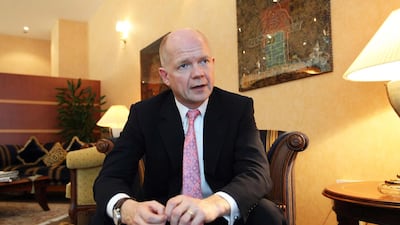Former UK foreign secretary Lord Hague has suggested the government should copy systems used by the banking sector to prevent against sensitive information leaks.
Lord Hague was speaking following recent revelations that the-then British ambassador to the US had called president Donald Trump “inept” in a private diplomatic memo, which was then printed in a UK newspaper. The ensuing furore led to the resignation of Sir Kim Darroch, the ambassador, and sharp words from Mr Trump. The identity of the leaker is still unclear.
“In the private sector now, in major financial institutions for instance, if somebody sent sensitive data in an email to an external email address you would almost certainly be able to find out who did it,” he told the UK foreign affairs select committee.
“If somebody is examining an entire database of files you would almost certainly be able to work out who did that, you would expect to be able to do that,” Lord Hague, foreign secretary from 2010-2014, said.
If still in government, he said he would want to know if they had the functionality to identify a leaked and added: “And if not, why not and if not, when are we going to get it?”
The government recently rolled out a new information sharing system so it is possible it does now have these capabilities.
It was also pointed out that an updated network would not be a 100 per cent defence against leaks because photographs can be taken of sensitive information or printed out.
The resignation of Sir Kim sent a diplomatic bombshell through Westminster and divisions over how it should be dealt with. It also saw Mr Trump attack the approach of outgoing UK prime minister Theresa May to Brexit.
It was reported that the failure of Boris Johnson, the former foreign secretary and favourite to take over as prime minister next week, to fully back Sir Kim led to the ambassadors resignation.
While not mentioning Mr Johnson by name, Lord Hague did say it was “most unfortunate that not all former foreign secretaries could give robust and unequivocal support.”
He also said it was important that potential leakers truly fear they can be caught.
“I think the biggest disincentive is a high likelihood of being found out almost irrespective of what the penalties - as long as there are some serious penalties,” he said.
“Exposure and the disgrace of that and career consequences of that would be a big penalty and deterrent if people thought that was likely to happen.”


